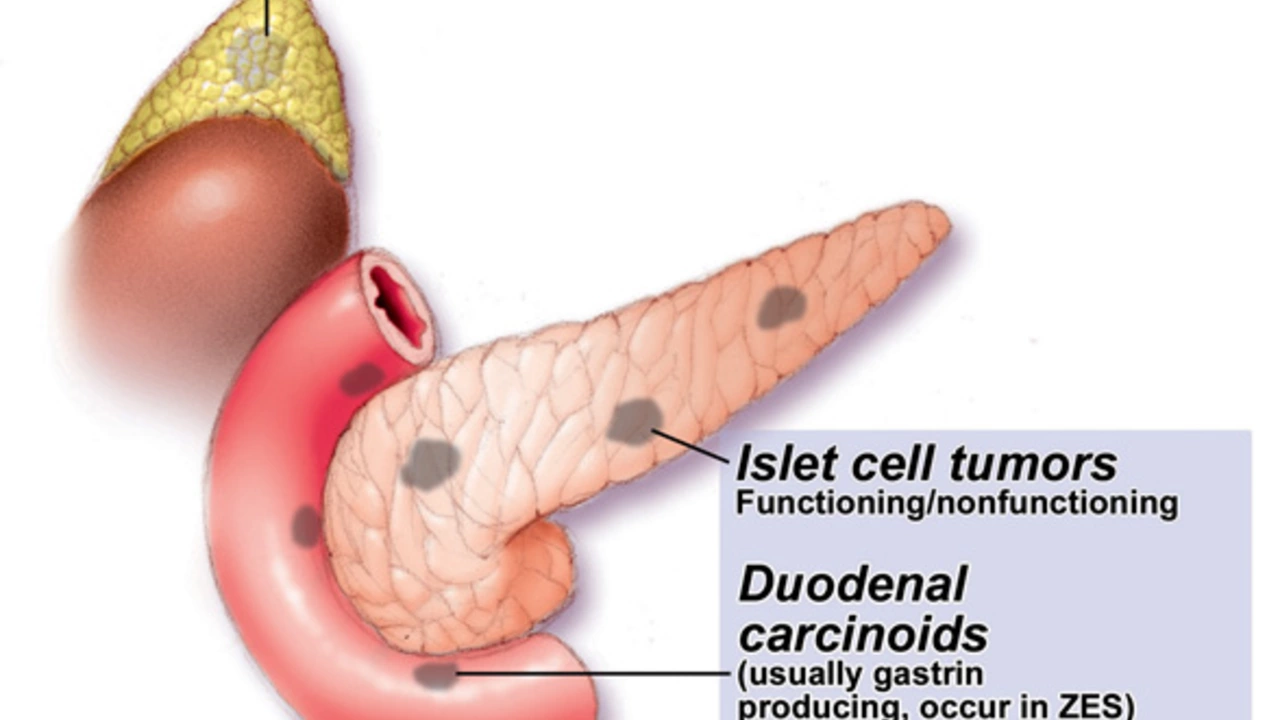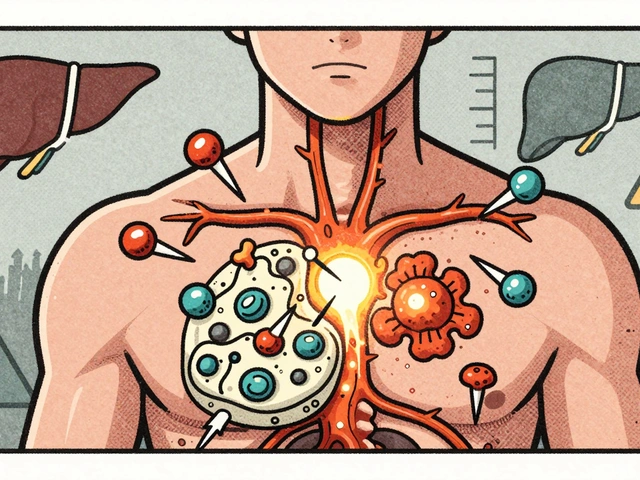Zollinger‑Ellison syndrome: symptoms, testing and treatment
If you have hard-to-control acid reflux, lots of ulcers, or diarrhea that doesn’t make sense, Zollinger‑Ellison syndrome (ZES) might be why. ZES is caused by a gastrinoma — a tumor that makes too much gastrin. That excess gastrin forces the stomach to overproduce acid and leads to multiple ulcers, reflux, and sometimes weight loss or diarrhea.
How doctors diagnose ZES
Diagnosis starts with blood tests. A fasting gastrin level is the first step. Very high fasting gastrin (often >1000 pg/mL) strongly suggests a gastrinoma. If gastrin is mildly or moderately raised, doctors usually do a secretin stimulation test. After injected secretin, a rise in gastrin of more than 120 pg/mL is considered diagnostic in many centers.
Important: proton pump inhibitors (PPIs) raise gastrin levels. If it’s safe for you, your doctor may switch you to an H2 blocker or stop acid drugs for testing. Never stop a PPI without medical advice — it can cause rebound acid and severe symptoms.
Imaging finds the tumor. Common tests are CT or MRI of the abdomen, endoscopic ultrasound, and modern nuclear scans like Ga‑68 DOTATATE PET/CT (a somatostatin receptor PET). These scans are better at finding small gastrinomas, including those in the pancreas or small bowel. If ZES is suspected, doctors also check for MEN1 — a hereditary syndrome that raises the chance of gastrinomas and other endocrine tumors.
Treatment and practical tips
Treatment has two goals: control acid and remove or control the tumor. High‑dose PPIs usually control acid symptoms and heal ulcers. Many people need long‑term PPI treatment. If the gastrinoma is localized and removable, surgery offers the best chance for cure. When the disease has spread (commonly to the liver), treatments include surgery, liver-directed therapy (embolization), somatostatin analogs (octreotide or lanreotide), targeted drugs (like everolimus), and peptide receptor radionuclide therapy (PRRT) for receptor‑positive tumors.
Practical advice: bring a clear list of all medicines, past ulcer history, and recent test results when you see a specialist. If you’re on a PPI and a clinician is planning gastrin testing, ask whether you can safely pause it or switch to an H2 blocker first. Watch for red flags — severe vomiting, black stools, fainting, or signs of dehydration — and get urgent care.
Follow‑up matters. Regular acid control checks, periodic gastrin levels, and repeat imaging keep track of tumor growth or spread. If MEN1 is suspected, genetic testing and screening for parathyroid and pituitary problems are recommended.
Want to know what to ask your doctor? Ask about the plan to locate the tumor, how testing for gastrin will be handled with your current meds, the role of surgery in your case, and long‑term monitoring. ZES is uncommon, but with the right team — a gastroenterologist, endocrinologist, and an experienced surgeon — it’s manageable and often controllable.

- Jul 6, 2023
- Posted by Cillian Osterfield
Managing Zollinger-Ellison Syndrome: Treatment Options and Strategies
In my recent exploration of Zollinger-Ellison Syndrome (ZES), I've discovered several treatment options and strategies to manage this rare condition. The primary approach involves medication to reduce stomach acid and heal peptic ulcers. In some cases, surgery might be necessary to remove tumors. Dietary changes can also be beneficial to help manage symptoms. It's crucial to work closely with your healthcare provider to find the best strategy for you.
Categories
- Health and Wellness (72)
- Medications (69)
- Health and Medicine (28)
- Pharmacy Services (12)
- Mental Health (9)
- Health and Career (2)
- Medical Research (2)
- Business and Finance (2)
- Health Information (2)
Latest Posts
©2026 heydoctor.su. All rights reserved





